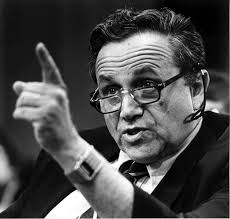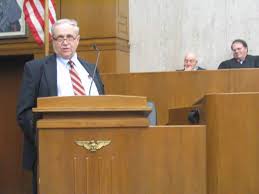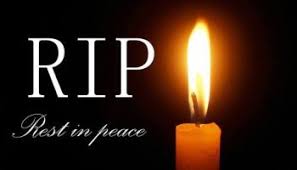A Personal Tribute to Judge Stanley Sporkin: The Fern Street Crew Gang Prosecution (Part II of II)

My relationship with Judge Sporkin started in the 1990s when I served as an Assistant U.S. Attorney in the District of Columbia. I prosecuted a number of criminal cases before Judge Sporkin.
In 1996, my colleague, Jim Dinan, and I prosecuted a RICO and Continuing Criminal Enterprise gang case against the “Fern Street Crew,” before Judge Sporkin. The case involved five defendants who were charged with numerous murders, violent shootings, and cocaine trafficking. The case was investigated by the FBI’s Safe Streets Task Force and Metropolitan Police Departments, and included evidence from numerous members of the Fern Street Crew, who agreed to plead guilty and testify, and witnesses, victim and undercover drug transactions.
From the beginning Judge Sporkin approached the case fairly and with proper regard for the safety of jurors and witnesses, while protecting the defendants’ rights to a fair trial. Given the threat of extra-judicial killing of witnesses and their families, Judge Sporkin authorized the use of an anonymous jury for the trial.

Following a lengthy trial, the defendants were convicted of numerous offenses, including murder, armed robbery, kidnapping and drug and RICO conspiracies. Each of the defendants was ultimately sentenced to life in prison. The defendants’ appeals were quickly rejected by the D.C. Circuit. This last point was especially important to Judge Sporkin because it confirmed to him that he had conducted a fair trial, free from significant error. He was right.
The trial included some chilling moments of courtroom drama, which Judge Sporkin always recounted to me in later years. These events had left an incredible mark on Judge Sporkin (as they had on me).

An early witness who testified as a community leader from the Fern Street Area (near Georgia Avenue and Silver Spring) who initially complained to the US Attorney’s Office of rampant gang violence in their neighborhood. The community leader, in the presence of the defendants recounted the frustration and fear of community members who wanted law enforcement to investigate and prosecute members of the Fern Street Crew. Judge Sporkin always admired the courage of this community leader to testify in a secure courtroom about the community group’s legitimate concerns.
A second dramatic incident involved the attempted murder of a rival gang member, who was tricked into coming to a female Fern Street Crew member’s apartment to have sex. When the rival gang member arrived, he was kidnapped at gun point by members of the Fern Street Crew, stripped naked and thrown into the back of a van. The Fern Street Crew members drove the rival gang member to the nearby woods, and forced the rival gang member to kneel down naked on the ground. A Fern Street Crew member put a gun to the rival gang member’s head and told him “You are going to die now,” and shot the rival gang member in the head.
Two hours later, the rival gang member woke up, crawled out of the woods, was rescued by a civilian driving through the area, and then transported by helicopter to a hospital. The victim survived.

Five years later, the victim walked into the courtroom and testified against the Fern Street Crew before Judge Sporkin. As he testified, the jury was mesmerized. Judge Sporkin leaned back in his chair, with his eyes closed, but attentively listened. The victim did not know the shooter and had never been asked to identify him. The victim then identified the shooter (who was wearing glasses in the courtroom). Judge Sporkin never forgot this testimony.
The third dramatic event involved an attack on the girlfriend of a Fern Street Crew member. The gang member was castigated as “weak” because he had developed a “problem” by smoking crack cocaine. To punish him, two other Fern Street Crew members decided to attack the girlfriend of the drug user, gang member.
The two gang members knocked on the girlfriend’s door, charged into her apartment when she opened the door and threw the girlfriend on her bed. The girlfriend had a six-month old baby who was lying underneath the girlfriend’s body on the bed. The crew members wrapped the girlfriend’s legs together with a long telephone cord, attempted to smother her with a pillow and then tried to rape the girlfriend while she was lying on top of her baby. The baby was crying. One the gang members decided to warm up a bottle of milk and feed the baby while the other gang member continued to try and rape the girlfriend despite having her legs tied together.
The girlfriend, who had no involvement in the gang’s activities, was a religious woman from southern Virginia. Before testifying about these events, she prayed and asked me to do so. I prayed with her.

The Fern Street Crew jury was comprised of all women, and was legendary in the US Courthouse as one of the most professional and impressive juries to be selected in history (up to that point). Suffice it to say, when the girlfriend/victim testified about the events described above, several jurors cried. The victim testified and maintained her composure except for brief moments when she cried. She courageously identified the two defendants responsible for the attack. The jury sat on the edges of their respective chairs. Judge Sporkin leaned over the bench, staring at the two defendants identified, and with a glare looked at them with disgust.
For years, Judge Sporkin would recall these moments from the trial. He repeatedly urged me to write a book with him, claiming to title it, “How We Saved the Fern Street Neighborhood.” I always agreed. Judge Sporkin was proud of the way in which he handled this difficult trial, and he had every right to be proud. Out of all the complex gang cases prosecuted in the US District Court for the District of Columbia, Judge Sporkin’s handling of this case stood out as one of his finest moments.















